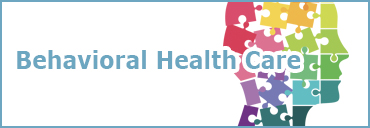LOADING
Share

Google the terms “well-being,” “self-care,” “wellness” or “health behaviors” and you will find millions of entries including lists of ways to care for our physical, emotional, spiritual, social, and financial health. The growing fields of positive psychology and lifestyle medicine have brought attention to the importance of “active engagement,” or taking positive steps to prevent, manage, and improve medical or psychological conditions (Bolier et al., 2013; Hibbard & Green, 2013). Good self-care and healthy behaviors are associated with a decrease in the risk of disease and health problems; improved physical and mental health; and a better quality of life. If you have a health condition, self-care and good health habits enable you to more effectively manage it. Well-being is also associated with reduced medical costs and better profits for businesses (Fox, 2012; Hibbard & Green, 2013).
While there are different definitions and conceptual frameworks that identify and discuss well-being or health behaviors, many of these overlap. Let me provide some examples.
Examples
The National Wellness Institute (NWI) defines wellness as “an active process through which people become aware of, and make choices toward, a more successful existence” (2017). The six dimensions of wellness promoted by NWI are as follows:
- Occupational (choosing a rewarding career)
- Physical (eating healthy foods, being physically fit)
- Social (contributing to the welfare of the community)
- Intellectual (engaging in creative and stimulating mental activities)
- Spiritual (meaning in life, living in a way that is consistent with our values and beliefs)
- Emotional (being aware of and accepting our feelings, being optimistic)
Seligman (2012) promotes five elements of well-being:
Positive emotion (the cornerstone of well-being that helps negate negative emotions and lead to happiness and satisfaction)
Engagement (involvement in tasks or activities that bring satisfaction, pleasure, ecstasy or comfort)
Positive relationships (loving connections with others that help us deal with life’s difficulties)
Meaning or purpose in life (serving something larger than ourselves)
Accomplishments or achievements (pursuing success or mastery for their own sake)
Anderson and Anderson (2003) state that health and longevity are affected by overall well-being in six domains:
- Biological and lifestyle (activity, diet, smoking, drinking)
- Psychological or behavioral (thoughts, actions, response to trauma)
- Emotional (positive emotions, dealing with the most problematic emotions of depression/sadness, anxiety/fear, anger/hostility)
- Economic (achievement, economic equality, education, income)
- Environmental and social (housing, safety, neighborhood, relationships)
- Existential, religious or spiritual (beliefs and actions that foster faith and meaning in life)
Engaging in self-care or healthy behaviors to improve well-being are not one-time events, but things that are best incorporated into our daily lives. Sustaining these behaviors over time enable us to meet our needs, manage stress and emotions, soothe ourselves, and engage with positive people and in positive experiences and activities that are meaningful and healthy.
For Those in Helping Professions
Those of us who work in medical, behavioral health or social service settings often work with complex problems that require time, energy, attention, and skill on our part. Due to the nature of our work in “giving” so much to others, it is easy to ignore our needs or our well-being. In addition to a career helping others, many of us care for children, grandchildren or a sick or aging family member. Some of us have special needs children or adult children who are struggling in life and not very successful. Others have excessive demands at work or difficult coworkers. Some of us have medical, psychological or financial stressors. Any one or combination of these can overwhelm us, especially if we lose ourselves in the process or do not focus on our needs and seeking help or support from others. Employee assistance or wellness programs, a personal coach or therapist can help us make and sustain positive health behaviors that improve our well-being.
Rather than provide a list of strategies to improve well-being, I will briefly share some of what I do to stay healthy, manage stress, reduce negativity, and increase positivity. I have made many mistakes during my lifetime by not paying sufficient attention to my well-being and health, so I hope sharing my experiences may get you thinking about your own well-being.
Physical Health and Exercise
Much has been written about the benefits of exercise and physical health behaviors including rest and sleep (Ratey & Hagerman, 2013; Huffington, 2014). I’m in the later third of life—over the age of sixty—so I get regular physical examinations, follow a decent diet, and exercise nearly every day. For years I struggled with sustaining regular exercise beyond a few months until I walked in the woods with a retired friend in his seventies who was in excellent shape. His secret was simple, so I adopted it immediately: walk and/or run every day rather than three or four days a week, since I often stopped after several months. Each day I “make” time to run or walk rather than “find” time so exercise is now a daily ritual. I track my mileage and steps along with a small group, and we encourage each other to keep active or fight through struggles. I mix it up in terms of places I walk and run. I also enjoy my walks with a friend during which time we solve the problems of the world. From daily walking and running I feel better physically and mentally. Although losing weight was never my goal, I lost over twenty-five pounds.
Emotional and Interpersonal Health
Much has also been written about the benefits of decreasing negative and increasing positive emotions, stopping harmful relationships, staying connected with supportive people and focusing on love relationships (Seligman, 2012; Emmons, 2013; Fredrickson, 2013). I no longer focus much energy on negative emotions or let these pull me down as I have learned not to get angry, anxious or upset over things that are not worth it or that I cannot control. I focus on feeling and expressing positive emotions like gratitude, joy or love. I try not to take my blessings for granted, so I express gratitude and positive emotions to let others know how I feel and what I appreciate about them (See Emmons, 2013 for a review of strategies to increase gratitude and benefits of doing so). I limit my time with people who complain chronically or are too negative, and spend my time with people whose company I enjoy. I also mentor young people at work or in my family as a way of giving back and sharing my experiences.
Savoring Life’s Joys, Playing, and Having Fun
There are many things I savor in life related to the senses—hearing, tasting, smelling, seeing—and I usually live in the moment rather than project in the future. I savor meaningful connections with others. For example, being with my grandchildren brings me indescribable joy. There is nothing like being awakened at 6:00 AM by a four-year-old to play, then later hike in the woods to look for spiders and enjoy nature. Or, having a sixteen-month-old bring me a book and sit on my lap while I read it. Or, holding or feeding an infant. Such experiences are meaningful and extraordinary, and speak to the importance of play and fun with others.
Financial Health
I grew up in a poor family and did not learn about budgets or financial management. As a result, I made about every mistake one can make, so I am aware of bad money habits, as well as the importance of financial competence. Fortunately, I made significant changes and have a few suggestions since spending habits affect health and the quality of life. First, live within your means and don’t spend money you cannot afford on gifts or things you do not need or your budget can’t handle. Second, invest in retirement and save as much as you can now or you will regret it. Third, follow a budget and find “little” ways to cut down on spending. Fourth, find low interest for loans, consolidate multiple debts once only, avoid long-term mortgages if possible, and review your financial plan regularly. I know many people who have a serious problem in their primary relationship due to poor money management.
Intellectual Growth
I remain curious about many things in life. I consciously cultivate this by pursuing many interests, reading, learning from others, engaging in stimulating discussions, being creative, and refusing to be bored at home or work. I have discovered many exceptional websites and resources that help me learn and expand my horizons.
Questions to Consider
- How do you view your own well-being and behaviors that contribute to the different domains of your life?
- What is one area to improve and how can you do this?
- How can you sustain your motivation so that this improvement lasts?
References
Anderson, N. B., & Anderson, P. E. (2003). Emotional longevity: What really determines how long you live. New York, NY: Viking.
Bolier, L., Haverman, M., Westerhof, G. J., Riper, H., Smit, F., & Bohlmeijer, E. (2013). Positive psychology interventions: A meta-analysis of randomized controlled studies. BMC Public Health, 13, 119.
Emmons, R. A. (2013). Gratitude works! A twenty-one day program for creating emotional prosperity. San Francisco, CA: Jossey-Bass.
Fredrickson, B. L. (2013). Love 2.0: How our supreme emotion affects everything we feel, think, do, and become. New York, NY: Plume.
Fox, J. (2012). The economics of well-being. Harvard Business Review. Retrieved from https://hbr.org/2012/01/the-economics-of-well-being
Hibbard, J. H., & Greene, J. (2013). What the evidence shows about patient activation: Better health outcomes and care experiences; fewer data on costs. Health Affairs, 32(2), 207–14.
Huffington, A. (2014). Thrive: The third metric to redefining success and creating a life of well-being, wisdom, and wonder. New York, NY: Harmony.
National Wellness Institute (NWI). (2017). The six dimensions of wellness. Retrieved from http://www.nationalwellness.org/?page=Six_Dimensions.
Ratey, J. J., & Hagerman, E. (2013). Spark: The revolutionary new science of exercise and the brain. New York, NY: Little, Brown, and Company.
Seligman, M. E. P. (2012). Flourish: A visionary new understanding of happiness and well-being. New York, NY: Atria Books.
Previous Article
What is God? Part I









 Counselor Magazine is the official publication of the California Association of Addiction Programs and Professionals (CCAPP). Counselor offers online continuing education, article archives, subscription deals, and article submission guidelines. It has been serving the addiction field for more than thirty years.
Counselor Magazine is the official publication of the California Association of Addiction Programs and Professionals (CCAPP). Counselor offers online continuing education, article archives, subscription deals, and article submission guidelines. It has been serving the addiction field for more than thirty years.